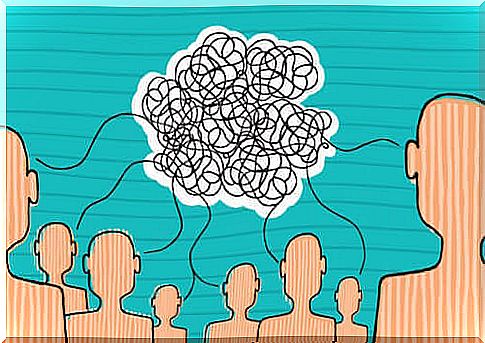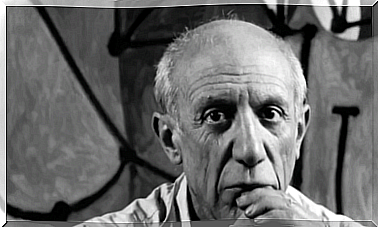How To Change Someone’s Mind, According To Neuroscientist Tali Sharot

Changing someone’s mind is a task of varying difficulty, an objective conditioned by various circumstances. We usually pass a critical filter on an idea before adopting it as our own . Once this first filter has been passed, it is however difficult for us to question it.
Neuroscientist Tali Sharot, author of The Influential Mind , studied this phenomenon in detail. His attraction to the subject arose from a simple fact: to change someone’s mind, even if the evidence points in this direction, is not an easy thing to achieve.
Sharot was struck by our ability to reject evidence that contradicted our beliefs. Consciously or unconsciously, we are able to close our minds and refuse to see reality from another angle . So how do you get someone to change their mind? Read on.
The stubborn brain
The human brain loves novelty, but it is also resistant to change. While he enjoys digging and discovering, he also understands that mutating the patterns he works with takes a lot of energy. It therefore generally has many requirements to achieve these variations.
When new, valid and well-argued information emerges, we generally receive it well. The problem arises when this new information contradicts the construction of some of our diagrams . In other words, any novelty is very well assimilated, as long as it does not call into question previous knowledge or beliefs.
This would initially appear to be a “design error”. However, it is more of a conservation mechanism and a way to save energy. The available data indicates that the brain rejects or filters out anything that constitutes an invitation to change the way it does things.
The brain is not good at dealing with uncertainty. While this new idea generates a lot, a common attitude is to protect yourself. Sometimes we prefer to think that we are still on solid ground, even though we are surrounded by water on a swaying platform. Tali Sharot proved this with some experiments.

Tali Sharot’s experiences
Tali Sharot and some of his colleagues conducted a study to find out how a person’s opinions work and how they change. They carried out several tests and a simple experiment. This involved asking several people to calculate the price of a house and express their level of confidence in their opinion.
The volunteers also had to bet for their opinion, from 0 to 60 cents. They were then allowed to observe what their other companions had marked. They also had the possibility of modifying their bet. It happened that if another volunteer called out a number similar to the others, he increased the bet.
On the other hand, if another participant had a very different number, they did not take it into account. It didn’t matter that the person was extremely sure of their calculation and had bet a lot. Generally speaking, it was not taken into account if it contradicted personal opinion.
Make someone change their mind
The studies above, and others, show that it is very difficult to get someone to change their mind. This even if the person has solid evidence of their mistake. They also showed that when a person hears opinions different from their own, they can experience some kind of desensitization .
So how do you get someone to change their mind? The first thing to do, according to Dr Tali Sharot, is to present common arguments. Something like finding the right points of agreement to keep the other’s brain from going out and going numb.
We believe not only what we think is true, but also what we want to believe. In order to get someone to change their mind, it is important to fulfill that desire. Not to discredit him. Likewise, you need to take into account previous fears and beliefs.

An example
An example of a process for changing someone’s mind might follow the following pattern: you think there is a conspiracy, and I also think there are unclear interests motivating some of the actions that affect us, but I don’t believe there is a conspiracy as such. We both think there are powerful groups behind it. We both know that there is information to which we do not have access.
I am also afraid that you will see this happen. The difference between your opinion and mine is that in my opinion there are also people like you or me who resist submitting. The most committed created very serious organizations to publicize the abuses or abuses of powerful groups.
I believe in the information these organizations produce, as they have been doing so for many years and have shown that they can be trusted as a source. Why do you only believe in anonymous sources?










